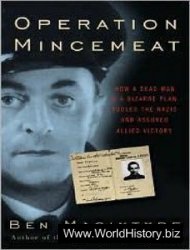The Chickasaw, like other Indian peoples, practiced what some scholars have called the “law of hospitality.” An English trader named James Adair, who lived among many tribes of the Southeast, including the Chickasaw, for almost 40 years in the 1700s, wrote:
They are so hospitable, kind-hearted, and free, that they would share with those of their own tribe the last part of their own provisions, even to a single ear of corn; and to others, if they called when they were eating; for they have no stated meal time. An open, generous temper is a standing virtue among them; to be narrow-hearted, especially to those in want, or to any of their own family, is accounted a great crime, and to reflect scandal on the rest of the tribe. Such wretched misers they brand with bad characters.
The Spanish had early contacts with the Chickasaw. Hernando de Soto led his expedition into their territory in 1541. True to the “law of hospitality,” the Chickasaw let the outsiders live among them. But de Soto tried to force the tribal chiefs into providing 200 bearers to carry his supplies. He also had his men execute two Chickasaw for stealing pigs and cuts off the hands of a third. In retaliation, the Chickasaw launched an attack on the conquistadores from three different directions, inflicting much damage before disappearing into the wilderness.
In the later colonial period, the Chickasaw became allies of the British. They were among the few tribes of the lower Mississippi not to join with the French in the French and Indian wars, and the Chickasaw support of the British created a balance of power in the region. Traders from the Carolinas, such as James Adair, helped keep this alliance with the Chickasaw intact.
In the 18th century, the Chickasaw regularly attacked French travelers on the Mississippi between New
Orleans and Canada. The French ordered the Chickasaw to expel British traders. They also demanded the expulsion of Natchez refugees who had fled to Chickasaw villages after the Natchez Revolt of 1729. And the French armed their allies, the Choctaw, against the Chickasaw. But the Chickasaw refused to yield. They carried out raids against both the French and Choctaw. They even managed to halt all traffic on the Mississippi for a time. The French organized many armies against the Chicka-saw—in 1736, 1741, and 1752—but they were all unsuccessful. The Chickasaw remained unconquered right up until 1763 and the ultimate English victory in the last of the French and Indian wars.
In the American Revolution of 1775—83, the Chickasaw attempted to remain neutral, although some warriors fought for both the British and the Americans. When the SHAWNEE chiefTecumseh tried to organize a united Indian stand against the United States in 1809—11, the Chickasaw again withheld total commitment.
Non-Indian settlement increased rapidly in the early 19th century. During the 1820s, many Chickasaw migrated west of the Mississippi by their own choice. But the majority remained in their ancestral homeland. In 1830, President Andrew Jackson signed the Indian Removal Act to relocate eastern Indians west of the Mississippi in a specified territory away from non-Indian settlements. The Chickasaw removal occurred mostly after 1837. This tribe did not suffer as much during the actual journey as the other relocated tribes—the CHEROKEE, Choctaw, Creek, and SEMINOLE—who later, with the Chickasaw, became known as the “Five Civilized Tribes.” But many Chickasaw died of cholera and food poisoning after their arrival in the Indian Territory.




 World History
World History









